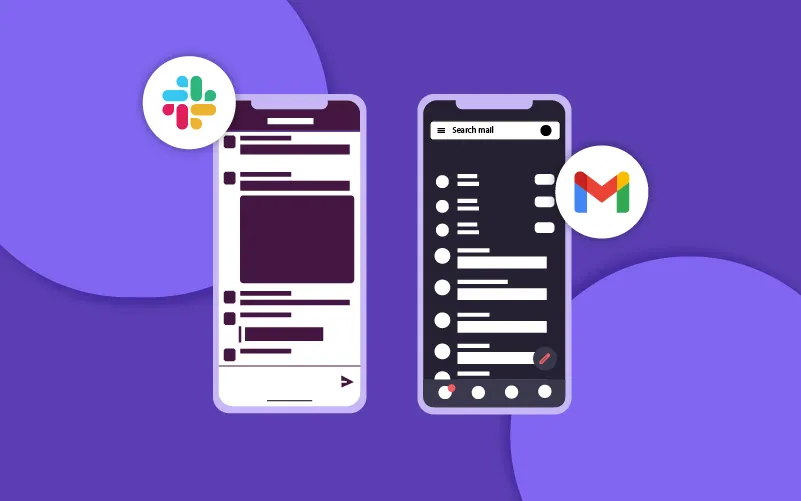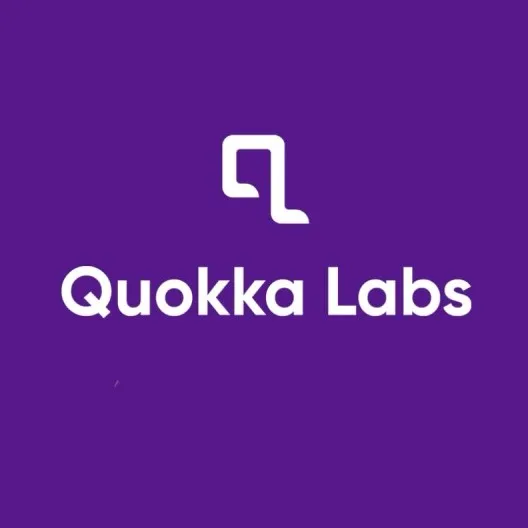Communicating effectively via written and verbal form also plays a vital role in the technical realm. It shouldn't be surprising if the company appreciates a professional who can ace both parameters.
But Why Is Communication Crucial Altogether In An Agile Team?
As a software engineer or developer, your Key Responsibility Areas (KRA's) may focus on programming, testing, and developing, but communication goes beyond that. It isn't actively mentioned in the job descriptions when applying at a web application development company, UI UX design company, or even a mobile app development company only because this is inevitable and considered a quality.
How you communicate with others in the team, or even those you're working with, can affect how well things go. It wouldn't hurt to put the people aspect into technical skills.
Explore More- Tips To Build Remote Engineering Team

And don't get us wrong! We are aware engineering is purely a technical field. But it's unfair to accept and get comfortable with the thought that many disciplines tend to be quieter about what they do because they're busy getting things done.
It is a significant hindrance that needs nurturing! It's not always easy to get everyone on board with everything! So during interviews, industry events, and work meetings, remember that you're part of an interdependent team - so try to make yourself heard more often and be a serious contributor towards solutions rather than letting any problems without answers linger in the background.
Engineering isn't only restricted to how well you can perform the job at hand but is so much more than that. To begin with, it's how effectively you can put across a message that's absorbed within a meeting full of your team members and management, after all. And so, your technical skills are essential, but soft skills will help you cut. In a remote engineering setting,
written and verbal communications are vital. It can be not easy when you are not around your team. When you are working with a remote team, that problem is multiplied.
Let's explore the benefits of having asynchronous communication through written communication of why your team might want to use:-
Explore More- How To Build A Strong Remote Team And Manage It?
Asynchronous Communication Determines Success When Working Remotely
Remote engineering teams typically rely on written communication to collaborate on projects. For example, remote teams communicate via email, chats, video chats, and other written correspondence for external and internal communications. Written communication is essential when working because it is asynchronous. Asynchronous communication allows workers to respond to messages at different times of the day, which helps them save time.
You shouldn't entirely rely on your memory as there's always something you are bound to forget or miss. Imagine that happening on a client call; how irresponsible would that look? And so, jotting down any notes or suggestions you may have before, after, or during a discovery call, meeting with your clients, or even team members can be beneficial. It can also be effectively used for improving a product or a process, for that matter.
Written communication sets apart the ambiguity that comes with verbal communication. Here's how!
- First and foremost, it helps you get your point across.
- Second, when working remotely, it's common not to catch hold of the person you wish to communicate something verbally. In that case, written communication is what comes to your rescue.
- The final benefit lies when you use written communication; it's documented for the longest time and something you can take accountability and responsibility for in the future.
Utilizing Emails And Allowing the Team to take ownership of the Project at Hand
Some colleagues or employees are not necessarily the best when presenting ideas to a team. They may be the most experienced out of the lot but still feel their palms sweating when addressing their ideas in front of the management or on a video call. However, it's a life skill that shouldn't be taken for granted, especially if you want your team to be efficient, collaborative, and productive when ensuring they are on the same page.

And so every team member must take ownership of their presentations and ideas by putting them across in the best way possible through written communication, if not verbal. This way, everyone is on the same page, the team will have clear minds, and no one will be confused about what needs to be done and when. Taking ownership is as simple as being responsible for your
project but it can go a long way. It will improve your team's efficiency, collaboration, and productivity.
Why email communication, you ask?
Remote working teams are growing in popularity and becoming the new normal. Whether you are a remote team member or work with remote people, emails are one of your primary communication forms.
However, you have to remember to possess good email etiquette. It will help you manage your agile team smoothly via powerful, agile project management tools.
A few points to remember, especially when you are interacting with the client:-
-. Don't send too many emails and bombard the other person's inboxes. It will confuse the receiver and may miss out on vital communication. Frame an email that has all the necessary points you want to put across with a good subject line to go with it.
- Keep your email content short, crisp, and concise. No one likes to read lengthy emails on a busy day.
- Should always communicate any necessary information through email.
So make it a point to:-
- When there are questions or concerns, communicate them in the email.
- When there are updates or new information, be sure to say it via email.
- If there are attachments, be sure to specify them and check if you have attached any document or not.
- Don't ever forget to proofread the email before hitting "send."” This reflects your courtesy. You read the email and care enough to check for typos, punctuation, and tonality.
The result of all this would be that your team will be more likely to adhere to deadlines, avoid making mistakes, and always be positive regarding effective communication. It is more of a responsibility to ensure your team knows what is expected. Communicating to clarify the message to your team, clients, and stakeholders is a route for lifelong employee and customer
satisfaction.
Clear Channels of Communication Within Teams
When a team works together on a project, especially if it is agile, like engineering teams, they must be completely transparent. It's vital that everyone is on the same page, so to speak, and that each person knows what they need to do. It can be achieved only when everything is
documented in written communication. The answer? Agile project management tool!

If there is an issue with the design of a website, a developer needs to be informed immediately. It's essential, too, that everyone knows the project's status. If you are in charge of a project, keep everyone informed. And the solution here is not to call every professional individually and inform them what's wrong; that will only be chaotic and isn't ideal for people to work with peace of mind. So then, what's the solution?
It is significant to set up channels of communication in any team environment. An excellent way to do this is to set something up that will be easy to use and accessible for everyone on the team. A few tremendous remote working tools for streamlining and organizing such communications and client projects are Slack, MS Teams, Jira Software, and Trello, which Quokka Labs uses day in and out.
How can communication and project management remote working tools be useful?
- You can use it to send text, images, and even complete files to any other person on the team and your clients to keep them informed throughout the progress. It will eliminate the back-and-forth rounds of communications.
- You can also organize your teamwork by creating different channels with a specific topic to keep track of daily progress. For example, at Quokka Labs, we use Jira software extensively to segregate work for technical projects and non-technical work responsibilities.
- You can also create channels for informal discussions, such as Office Events and News.
The above-mentioned remote working tools are vital for quickly getting the best out of your technical and non-technical teams.
Written Communication is the Future
When remote working, everyone communicates, but not everyone communicates clearly. If you work from home, chances are you'll still have plenty to do electronically and many opportunities to work together digitally as a team. It can get us thinking about what we need to do better and whether or not we're functioning effectively as a group. Along with the idea that more and more
employees will be telecommuting; one of the other significant trends that may normalize is that many people will communicate via writing remotely.
The importance of written communication in app development or web development business cannot be underrated. To succeed, you must adequately communicate your clients' workflow, expectations, timelines, and product or service. If you're not taking this seriously, take a moment to consider your competition. Research their communication strategies and how they deliver the
exact message you're trying to convey. Chances are they're doing something right, and you should take note. Making yourself understood in business is crucial to your success and your colleagues.
Final Words
More than the future of remote working, work is even more collaborative. Whether you're together in the exact physical location or not, it doesn't have to limit your collaboration. And the thread that lies at the heart of holding this thought together is effective communication.
Quokka Labs is a leading mobile app development company, web application development company for businesses of all sizes. We offer a wide range of tech and design services that can ace your existing digital products. Let us assist you in growing your business starting today!
Read Blog: React State Management Tools for Enterprise Application
Tags
Communication
Remote Engineering teams



 Facebook
Facebook
 Twitter
Twitter
 LinkedIn
LinkedIn
 Pinterest
Pinterest







